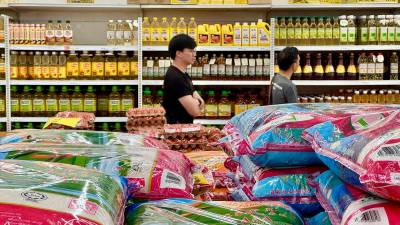PETALING JAYA: Malaysia is set to overhaul its subsidy system in Budget 2026, shifting from broad based handouts to a targeted,
data-driven approach that could reshape how households and businesses manage costs.
Economists said the reform would hinge on technology, using real-time data and artificial intelligence (AI) to ensure aid reaches those who need it most.
UniKL Business School Islamic Finance associate professor Dr Aimi Zulhazmi Abdul Razak said programmes such as Budi95, which track consumption via MyKad, would likely expand to cover essentials such as cooking oil, food, electricity, education aid and cash transfers.
“AI would process this data, enabling the government to
design more effective assistance programmes while planning for long-term national development,” he said.
Aimi Zulhazmi added that the impact of subsidy rationalisation would be felt across all groups, from B40 and M40 households to small businesses, influencing the cost of living, inflation and purchasing power.
“At the microeconomic level, it comes down to how households and businesses allocate limited resources, which are affected by supply, demand and pricing,”
he said.
The introduction of Budi95 has capped fuel subsidies, replacing the previous blanket scheme that benefitted foreigners and was vulnerable to misuse.
“Under Budi95, subsidies are limited to 16 million Malaysians for up to 300 litres each per month, with any usage beyond that charged at market rates. This system helps curb overspending and strengthens fiscal health heading into 2026,” he said.
He added that further rationalisation of fuel and electricity subsidies is expected next year, guided by data-driven targeting.
“If implemented successfully, unsubsidised RON95 prices will float according to global oil market trends, which are currently forecast at between US$60 and US$65 per barrel (between RM270 and RM293).
“The role of MyKad will expand beyond fuel, covering electricity, LPG, education aid and essential goods such as rice, sugar and cooking oil,” he said.
Aimi Zulhazmi also highlighted the trade-off between cash aid and subsidised goods.
“Cash aid offers flexibility but carries the risk of misuse, while subsidised goods ensure essentials reach those in need. The government must maintain transparency, update data regularly and establish effective feedback systems to prevent vulnerable groups just above the eligibility threshold from being overlooked,” he said.
Meanwhile, Universiti Putra Malaysia Putra Business School associate professor Dr Ida Md Yasin said deeper subsidy cuts would demand political courage.
“No government can expect full public approval, even 80% acceptance would be a success. The challenge lies in ensuring fairness, as households with similar incomes may shoulder vastly different responsibilities, such as raising one child versus five,”
she said.
She added that broad subsidies carry hidden economic costs.
“Staples such as rice, sugar and cooking oil form the backbone of household consumption and dominate subsidy frameworks. But pushing retail prices far below market levels provides only temporary relief while encouraging smuggling and undermining fiscal stability,”
she said.
